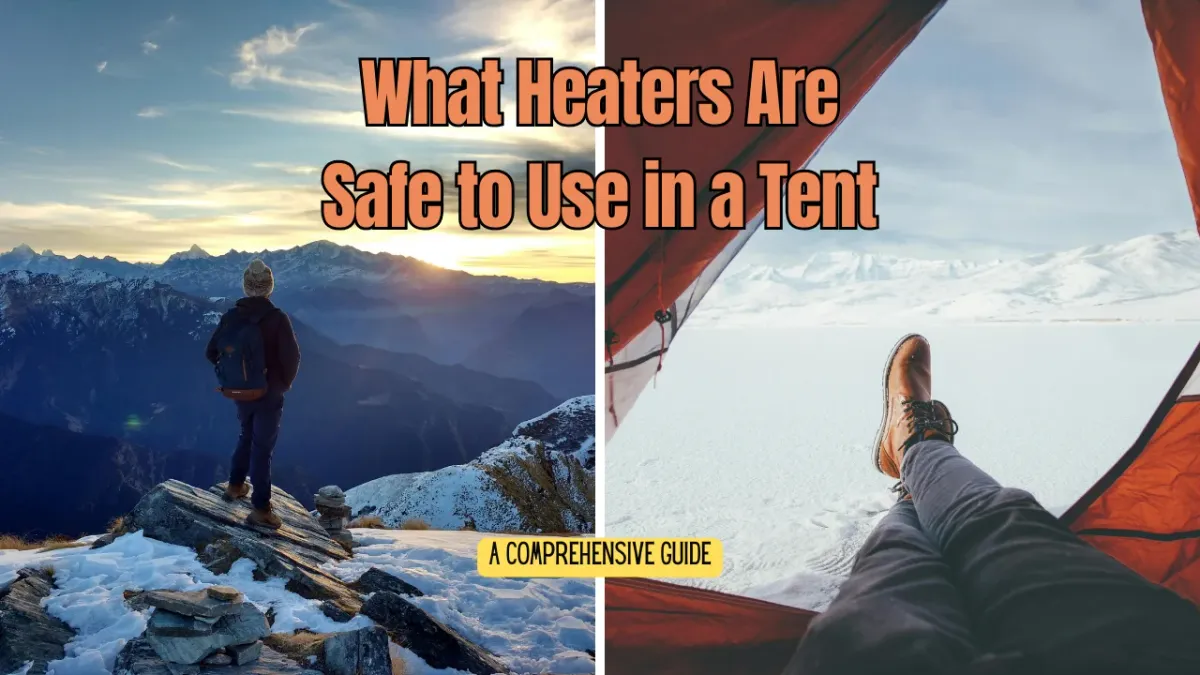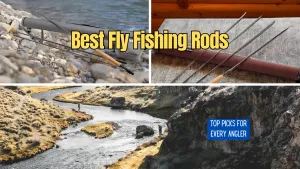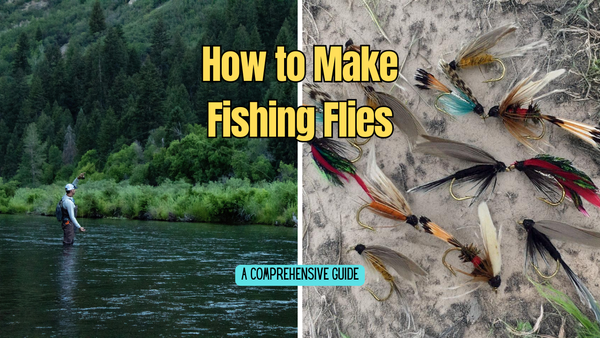Camping is an adventure that reconnects us with nature, but when temperatures drop, staying warm becomes a priority. Many campers ponder the safety of using a heater inside their tent to fend off the cold. This comprehensive guide will explore the ins and outs of using heaters safely in tents, ensuring you stay cozy without compromising safety.
Key Takeaways:
- Understanding the risks and safety features of different types of tent heaters is crucial for safe use.
- Proper ventilation and the use of carbon monoxide detectors are essential when sleeping with a heater in a tent.
- Following manufacturer guidelines and safety instructions can prevent accidents such as fire hazards and carbon monoxide poisoning.
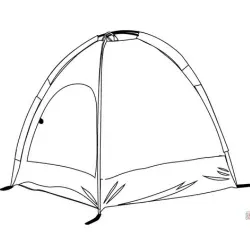
The Basics of Tent Heaters
When the mercury plummets, a tent heater can be a tempting solution for staying warm. But before you introduce a heat source into your small, enclosed space, it's important to understand the types of heaters available and their safety implications.
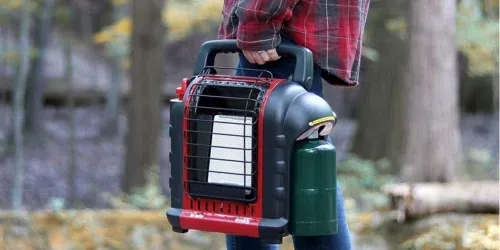
Types of Tent Heaters
There are several types of tent heaters, including propane heaters, electric heaters, and catalytic heaters. Propane heaters are popular for their portability and efficiency, but they must be used with caution due to the risk of carbon monoxide poisoning. Electric heaters are safer in terms of emissions but require a power source, which can be a limitation in remote camping locations. Catalytic heaters, on the other hand, use a chemical reaction to produce heat and are considered safer because they produce less carbon monoxide.
Safety Features to Look For
When selecting portable heaters, prioritize models with built-in safety features. Look for heaters with an oxygen depletion sensor (ODS), which automatically shut off the heater if oxygen levels drop too low. Tip-over switches that turn off the heater if it falls over are also essential. Additionally, ensure the heater is designed for indoor use and has been tested for safety in enclosed spaces.
The Dangers of Carbon Monoxide
Carbon monoxide is a silent killer. It's colorless, odorless, and can be deadly if inhaled in large quantities. Understanding the risks associated with carbon monoxide is crucial when considering sleeping with a heater in your tent.
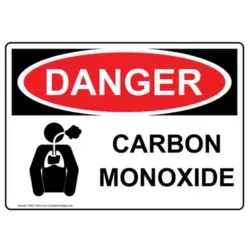
How Heaters Produce Carbon Monoxide
Combustion heaters, such as those that burn propane or kerosene, produce carbon monoxide as a byproduct. In a well-ventilated area, this isn't typically a concern, but in the confined space of a tent, carbon monoxide can quickly reach dangerous levels. This is why it's vital to ensure proper ventilation and to never leave a combustion heater running unattended.
Preventing Carbon Monoxide Poisoning
To prevent carbon monoxide poisoning, always use a carbon monoxide detector inside your tent when using a combustion heater. Ensure that the tent has adequate ventilation, even if it means letting in a bit of cold air. Follow the manufacturer's instructions for safe operation, and never use a heater designed for outdoor use only inside your tent.
Ventilation Is Key
Proper ventilation is not just about comfort; it's a safety necessity. Without it, you risk a buildup of harmful gases and a lack of oxygen, which can have serious consequences.
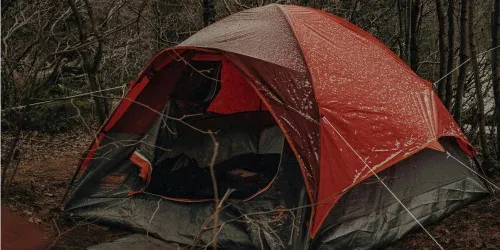
Why Ventilation Matters
When using any type of heater in a tent, fresh air circulation is essential. It helps to prevent the accumulation of dangerous gases like carbon monoxide and maintains a supply of oxygen for both you and the combustion process of the heater. Even electric heaters can benefit from ventilation, as they can cause condensation and increase humidity inside the tent.
How to Ventilate Your Tent
To ensure adequate ventilation, keep at least one vent or flap open at all times. Position the heater near the opening to allow for proper airflow. If your tent doesn't have built-in vents, you may need to partially unzip the door or a window. Remember, the goal is to balance warmth with a continuous exchange of air.
Fire Safety Considerations
Introducing a heat source into a tent raises valid concerns about fire risks. Tents are often made of flammable materials, and a heater could potentially ignite these if not used responsibly.
Keeping a Safe Distance
Always place the heater on a stable surface and maintain a safe distance from the tent walls, ceiling, and any flammable materials. Follow the safety guidelines provided by the heater manufacturer regarding clearance space. This will help prevent the tent fabric from overheating and catching fire.
Before You Go to Sleep
Never leave a heater running unattended, especially while sleeping. If you must use a heater to warm up the tent before bed, do so while you're awake and able to monitor it. Before going to sleep, turn off the heater to eliminate any fire risk. Use sleeping bags rated for the temperature and consider wearing layers to stay warm through the night.
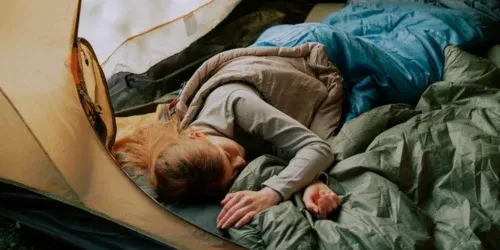
Choosing the Right Heater for Your Tent
Not all heaters are suitable for tent use. When choosing a heater for your camping trip, consider the size of your tent and the specific heating needs you have.
Size and Power Considerations
A small tent will require a less powerful heater than a large one. Assess the BTU (British Thermal Unit) rating of the heater to ensure it's appropriate for the size of your tent. A heater that's too powerful can make the tent uncomfortably hot and increase safety risks.
Best Tent Heaters on the Market
Research and invest in the best tent heaters that have a proven track record of safety and reliability. Look for heaters with positive reviews from other campers and those that come with the aforementioned safety features. Brands like Mr. Heater, with their Buddy Heater series of portable propane heaters, are often recommended for their built-in safety mechanisms.
Alternative Heating Methods
If you're hesitant about using a heater in your tent, there are alternative methods to stay warm that don't involve combustion or electricity.
Non-Electric Warmth Sources
Consider using hot water bottles, which can be filled with hot water and placed in your sleeping bag for added warmth. Electric blankets can also be an option if you have access to power, and they come with their own safety features to prevent overheating.
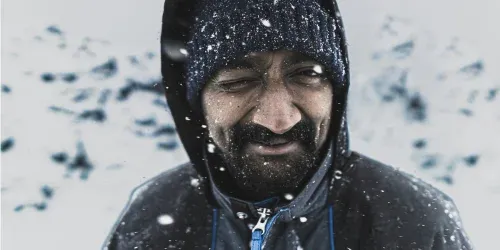
Insulation and Layering
Properly insulating your sleeping area can retain more heat. Use a high-quality sleeping bag, an insulated sleeping pad, and wear layers of clothing. These methods can help you stay warm without the need for a heater.
Preparing for Cold Weather Camping
Cold weather camping requires preparation and the right gear. Ensuring you have the necessary equipment to stay warm safely is part of that preparation.
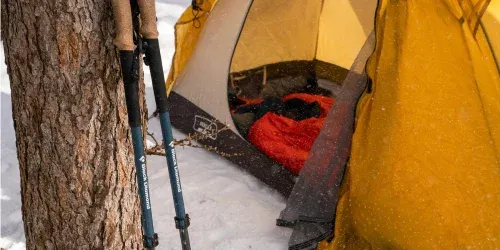
Essential Camping Gear for the Cold
Invest in quality camping gear designed for cold weather. This includes a four-season tent, a sleeping bag rated for low temperatures, and insulated clothing. These items will help you stay warm and reduce the need for additional heating sources.
Safety Instructions and Guidelines
Familiarize yourself with the safety instructions for any heating equipment you plan to use. Understand the guidelines for safe operation, and always have a backup plan in case your primary heat source fails or proves to be unsafe.
Monitoring and Maintenance
Regular monitoring and maintenance of your heater are crucial to ensure it operates safely throughout your camping trip.
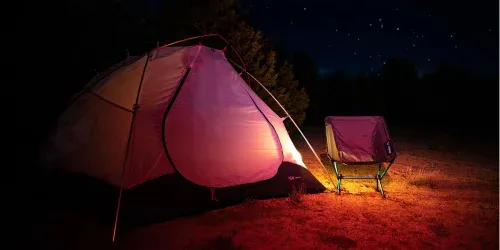
Regular Checks
Periodically check your heater for any signs of damage or malfunction. Ensure that all connections are secure and that there are no leaks, especially with propane heaters. If you notice any issues, discontinue use immediately.
Maintenance and Upkeep
Follow the manufacturer's instructions for maintaining your heater. This may include cleaning the heating elements, checking the battery for a carbon monoxide detector, and replacing any worn parts. Proper maintenance can prevent accidents and extend the life of your heater.
Safety Guidelines Recap
Before we conclude, let's recap the essential guidelines to ensure your tent heaters safe to use:
- Always use a heater with built-in safety features like oxygen depletion sensors and tip-over switches.
- Ensure proper ventilation in your tent at all times.
- Use a carbon monoxide detector when operating combustion heaters.
- Keep the heater at a safe distance from tent walls and flammable materials.
- Turn off the heater before going to sleep.
- Follow all manufacturer instructions and safety guidelines.
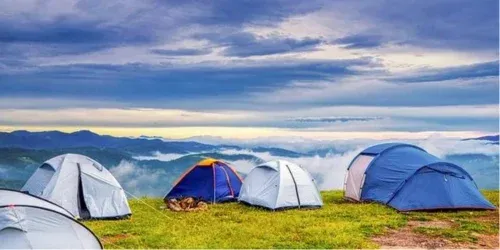
Summary
Sleeping with a heater in a tent can be safe if you take the necessary precautions. Choose the right type of heater with essential safety features, maintain proper ventilation, and be vigilant about fire risks and carbon monoxide poisoning. By following the guidelines outlined in this article, you can enjoy a warm and safe camping experience even in cold weather.
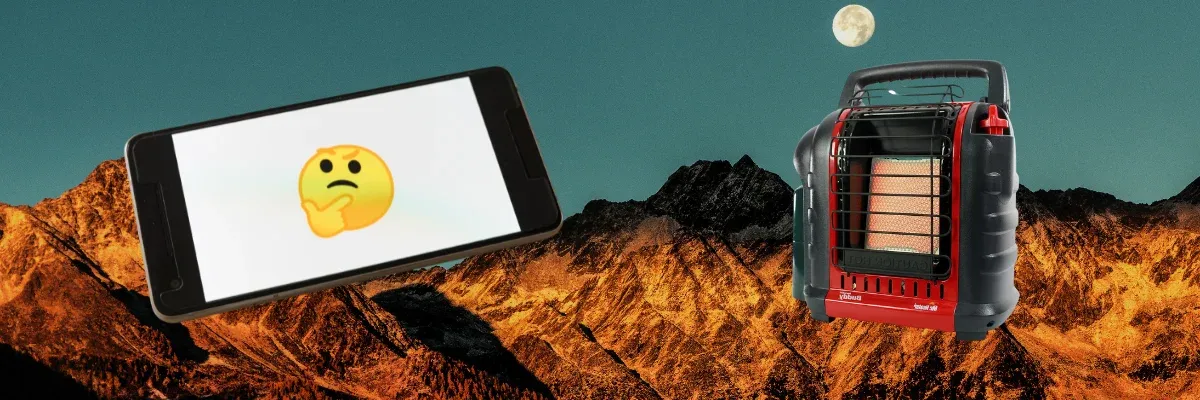
FAQs
Can I leave a propane heater running all night in my tent?
No, it is not safe to leave a propane heater running unattended or while you are asleep due to the risks of fire and carbon monoxide poisoning.
How can I tell if my tent has enough ventilation for a heater?
Ensure that your tent has vents or an opening that allows for fresh air exchange. If you're using a combustion heater, you should be able to feel a slight draft indicating that air is circulating.
What should I do if I suspect carbon monoxide is building up in my tent?
If you suspect carbon monoxide buildup, turn off the heater immediately, exit the tent, and seek fresh air. If anyone is experiencing symptoms of carbon monoxide poisoning, such as headache, dizziness, or nausea, seek medical attention right away. Always have a carbon monoxide detector in your tent as a precaution.
Can home space heaters be used in a tent?
Home space heaters are not recommended for use in tents due to several safety concerns. These heaters are typically designed for indoor use in well-ventilated spaces and may pose fire hazards or carbon monoxide risks when used in enclosed areas like tents. It's safer to use heaters specifically designed for outdoor or tent use, ensuring proper ventilation and minimizing potential hazards.
Related articles:
